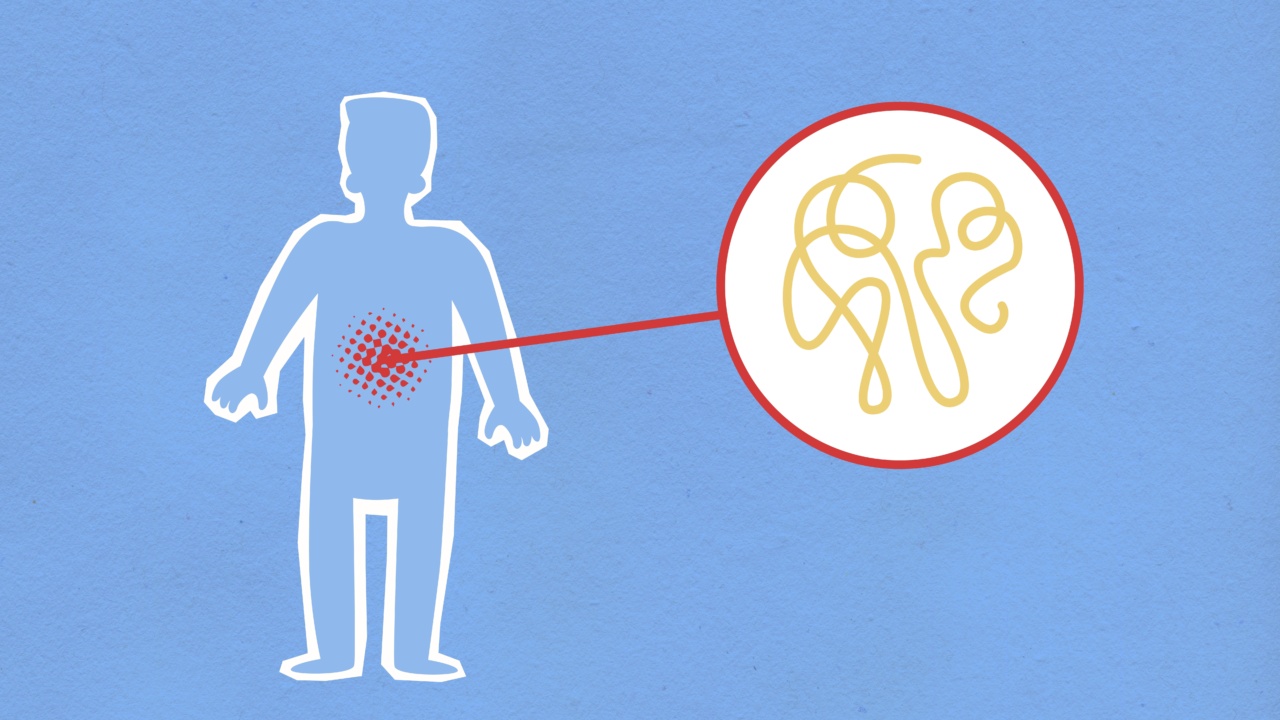Have you ever twisted your ankle or sprained your wrist? If so, you probably noticed some swelling, redness, and tenderness in the affected area.
This is an example of acute inflammation, a natural response of the body’s immune system to injury or infection.
But what happens when inflammation becomes chronic and persists for weeks, months, or even years? In this article, we will explore the different types of inflammation, their causes and effects on health, and ways to manage and prevent chronic inflammation.
Types of Inflammation
There are two main types of inflammation: acute and chronic. Acute inflammation is a short-term response that happens when the body’s immune system detects damage or infection in a tissue or organ.
The purpose of acute inflammation is to eliminate the source of the damage or infection and start the healing process. This process involves the release of chemicals called cytokines, which attract white blood cells to the affected area, resulting in swelling, heat, pain, and redness.
Chronic inflammation, on the other hand, is a long-term response that persists even after the original cause of inflammation is no longer present.
Chronic inflammation can be caused by a variety of factors, including persistent infection, autoimmune diseases, allergies, exposure to toxins, and lifestyle factors such as poor diet, lack of exercise, and chronic stress. Over time, chronic inflammation can damage tissues and organs, leading to a wide range of health problems, including heart disease, diabetes, cancer, Alzheimer’s disease, and autoimmune disorders.
Causes of Chronic Inflammation
Chronic inflammation can be caused by a variety of factors, including:.
Infections
Some infections can trigger chronic inflammation, especially if they are not treated promptly or if the immune system is weakened. Examples include tuberculosis, hepatitis, HIV, and certain viral and bacterial infections.
These infections can lead to chronic inflammation in the lungs, liver, intestines, and other organs, increasing the risk of complications and long-term damage.
Autoimmune Diseases
Autoimmune diseases are conditions in which the immune system attacks and damages the body’s own tissues and organs, mistaking them for foreign invaders.
Examples include rheumatoid arthritis, lupus, multiple sclerosis, and inflammatory bowel disease. These diseases can cause chronic inflammation in multiple organs and systems, leading to pain, disability, and reduced quality of life.
Allergies
Allergies are immune system reactions to harmless substances, such as pollen, dust, or food. In some cases, allergies can trigger chronic inflammation, especially if the exposure to the allergen is frequent or prolonged.
This can lead to conditions such as asthma, eczema, and hay fever, which can affect breathing, skin, and overall health.
Toxins
Toxins are substances that can damage cells, tissues, and organs, leading to inflammation and other harmful effects. Examples include cigarette smoke, air pollution, pesticides, and heavy metals.
These toxins can accumulate in the body over time, leading to chronic inflammation, oxidative stress, and increased risk of diseases such as cancer, heart disease, and neurodegenerative disorders.
Poor Diet and Lifestyle Factors
Diet and lifestyle factors can also contribute to chronic inflammation.
A diet high in sugar, refined carbohydrates, saturated and trans fats, and processed foods can trigger inflammation, while a diet rich in vegetables, fruits, whole grains, and lean proteins can reduce it. Lack of exercise, sleep, and stress management can also increase inflammation, while regular physical activity, good sleep hygiene, and mindfulness practices can lower it.
Effects of Chronic Inflammation on Health
Chronic inflammation can have a significant impact on health, increasing the risk of various diseases and disorders, including:.
Heart Disease
Chronic inflammation can damage the lining of blood vessels, leading to the formation of plaques and narrowing of arteries, which can increase the risk of heart attacks, stroke, and other cardiovascular events.
Cancer
Chronic inflammation can promote the growth and spread of cancer cells, especially in organs and tissues that are chronically inflamed. Inflammatory bowel disease, for example, increases the risk of colon cancer.
Diabetes and Metabolic Disorders
Chronic inflammation can interfere with insulin production and sensitivity, leading to elevated blood sugar levels and increased risk of diabetes, metabolic syndrome, and obesity.
Neurodegenerative Disorders
Chronic inflammation can damage brain cells and increase the risk of neurodegenerative disorders such as Alzheimer’s disease, Parkinson’s disease, and multiple sclerosis.
Autoimmune Disorders
Chronic inflammation can trigger and exacerbate autoimmune diseases such as rheumatoid arthritis, lupus, and multiple sclerosis, leading to chronic pain, disability, and reduced quality of life.
Managing and Preventing Chronic Inflammation
While chronic inflammation can have serious consequences, there are several ways to manage and prevent it:.
Healthy Diet
Eating a healthy diet rich in anti-inflammatory foods such as fruits, vegetables, whole grains, nuts, seeds, and fatty fish can reduce inflammation and promote healing.
Regular Exercise
Engaging in regular physical activity, such as brisk walking, cycling, or swimming, can lower inflammation and improve overall health and fitness.
Stress Management
Reducing chronic stress through relaxation techniques, meditation, yoga, or therapy can lower inflammation and improve mental health and resilience.
Good Sleep Hygiene
Getting enough sleep and practicing good sleep hygiene, such as avoiding electronic devices before bedtime, can reduce inflammation and improve mood and cognitive function.
Avoiding Toxins
Avoiding exposure to toxins such as cigarette smoke, air pollution, pesticides, and heavy metals can reduce inflammation and lower the risk of chronic diseases.
Conclusion
Understanding inflammation is crucial to maintaining good health and preventing chronic diseases.
By adopting a healthy diet and lifestyle, managing stress, getting enough sleep, and avoiding toxins, you can lower inflammation and improve your overall well-being. Consult with a healthcare provider if you have chronic inflammation or symptoms of inflammation, such as pain, fatigue, and swelling, to receive a proper diagnosis and treatment.





























